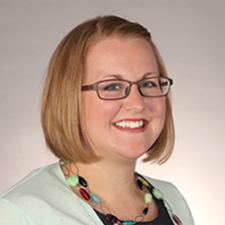Low-Income Baltimore School Choice Students Graduate Early, Attend College at Above Average Rates
INDIANAPOLIS (April 20, 2015) – A survey report released today finds recipients of a privately-financed Baltimore scholarship program for low-income families graduate high school early and go to four-year colleges at higher rates than local and national averages.
The Achievement Checkup, a Friedman Foundation for Educational Choice survey released today, tracks the long-term progress of students who utilized private school scholarships financed by the Children’s Scholarship Fund Baltimore in grades K–8. To date, few studies have examined the educational attainment of scholarship recipients beyond their K–12 careers.
Dr. Alex Schuh, the report’s author and independent education consultant, found 18 percent of the scholarship students graduated high school in three years compared to the only 2.9 percent of students across the national who are able to accomplish the same feat. Compared locally, 97 percent of the scholarship students graduated high school, while Baltimore County Public School students’ graduation rate is 34 to 64 percent.
After high school, 84 percent of the scholarship recipients enrolled in college – higher than the national average and the Baltimore average. Of the scholarship recipients, 98 percent of their parents wanted to see their children graduate from college.
“School choice programs are definitely producing highly-motivated students,” said Robert C. Enlow, President and CEO of the Friedman Foundation for Educational Choice. “This report shows 73 percent of scholarship students who went on to higher education attended four-year colleges rather than two-year colleges. That’s 20 percent more than Baltimore’s public school students.”
The study found scholarship recipients’ parents were also highly motivated. Nearly all (98 percent) of them reported that going to college was important for their children.
“Many education experts have gone on record saying the lack of involvement of impoverished parents is at the root of the nation’s education woes,” Enlow said. “This study confirms that low-income families absolutely value education, so why have low expectations for those families? They certainly don’t have low expectations for their children.”
About The Achievement Checkup‘s Methodology
The Achievement Checkup: Tracking the Post-Elementary Outcomes of Baltimore Need-Based Scholarship Students relies on the survey responses of scholarship recipients and their parents in the Children’s Scholarship Fund Baltimore. It examines all students who received scholarships of up to $2,000 annually for at least two years and up to nine years and completed the eight grade between 2004 and 2010. It provides a qualitative analysis of the effects of receiving a scholarship to a private school in grades K–8 and its impact in later education years.
Baltimore students awarded Children’s Scholarship Fund scholarships in grades K–8 went on to attend a variety of high schools including local public high schools (16 percent), magnet schools (19 percent), religious private schools (59 percent), secular private schools (3 percent), and home schooling (2 percent).
For more information about the Baltimore survey, click here.
About the Friedman Foundation for Educational Choice
The Friedman Foundation for Educational Choice is a 501(c)(3) nonprofit and nonpartisan organization, solely dedicated to advancing Milton and Rose D. Friedman’s vision of school choice for all children. First established as the Milton and Rose D. Friedman Foundation in 1996, the Foundation promotes school choice as the most effective and equitable way to improve the quality of K–12 education, and outreach on the vital issues and implications related to school choice.
More information contact:
Susan L. Meyers
National Media Relations Director
Friedman Foundation for Educational Choice
susan@edchoice.org 404-518-2271 (cell)
DOWNLOAD PRESS RELEASE AS PDF




